
In the 2022 superhero film Doctor Strange in the Multiverse of Madness, Wanda Maximoff (played by Elizabeth Olsen) completes the frightening transformation from hero to villain that she began in the Disney+ show WandaVision (2021). Now possessed by the Darkhold, a mystical book that corrupts the mind of those who use it, Wanda is fully unleashed as the evil and incredibly powerful Scarlet Witch. She can alter reality with her mind, and she is willing to perform unspeakable acts for the sake of her imaginary (or alternative universe) children. Yet through the film’s depictions of its villain’s many gruesome deeds, it poses a philosophical question about personal identity: is the Scarlet Witch actually Wanda at all, or is she now a different being entirely?
In a previous film column here (on WandaVision, in Issue 152), I articulated a concept I call the ‘identity algorithm’. This is the idea that the key to anyone’s identity is the unique decision-making matrix encoded into his or her brain activity through the combined influences of their genetics and their vast web of personal experiences. These two influences interact in complex ways to produce an individual’s unique thoughts and actions when faced with new situations.
Since one’s identity algorithm (a.k.a. personality) is always evolving and changing due to the continual impact of new experiences, you might expect this theory to conclude that the Scarlet Witch is Wanda, simply with an updated version of her brain identity algorithm as a result of her exposure to the Darkhold. Yet I do not believe this to be the case. I want to argue that the Scarlet Witch is not in fact Wanda Maximoff.
Esta historia es de la edición December 2023 / January 2024 de Philosophy Now.
Comience su prueba gratuita de Magzter GOLD de 7 días para acceder a miles de historias premium seleccionadas y a más de 9,000 revistas y periódicos.
Ya eres suscriptor ? Conectar
Esta historia es de la edición December 2023 / January 2024 de Philosophy Now.
Comience su prueba gratuita de Magzter GOLD de 7 días para acceder a miles de historias premium seleccionadas y a más de 9,000 revistas y periódicos.
Ya eres suscriptor? Conectar

Anselm (1033-1109)
Martin Jenkins recalls the being of the creator of the ontological argument.

Is Brillo Box an Illustration?
Thomas E. Wartenberg uses Warhol's work to illustrate his theory of illustration.

Why is Freedom So Important To Us?
John Shand explains why free will is basic to humanity.
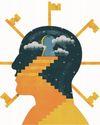
The Funnel of Righteousness
Peter Worley tells us how to be right, righter, rightest.
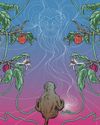
We're as Smart as the Universe Gets
James Miles argues, among other things, that E.T. will be like Kim Kardashian, and that the real threat of advanced AI has been misunderstood.
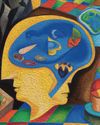
Managing the Mind
Roger Haines contemplates how we consciously manage our minds.
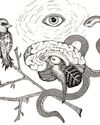
lain McGilchrist's Naturalized Metaphysics
Rogério Severo looks at the brain to see the world anew.
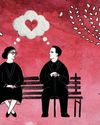
Love & Metaphysics
Peter Graarup Westergaard explains why love is never just physical, with the aid of Donald Davidson's anomalous monism.

Mary Leaves Her Room
Nigel Hems asks, does Mary see colours differently outside her room?
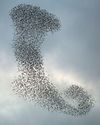
From Birds To Brains
Jonathan Moens considers whether emergence can explain minds from brains.